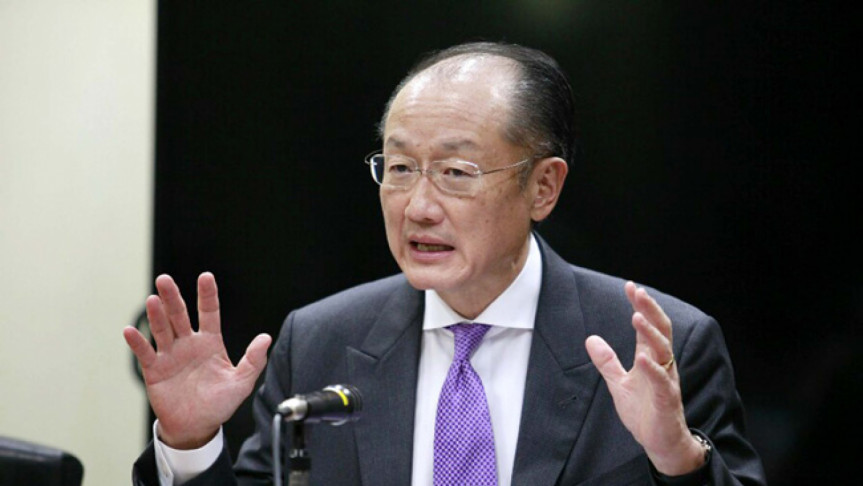World Bank pledges $2bn for Bangladesh’s climate smart growth

Dhaka: World Bank Group President Jim Yong Kim on Tuesday pledged $2 billion over the next three years in new funding to help the country become less vulnerable to climate change.
The $2 billion pledge in new money for climate change is in addition to $1 billion pledged by Kim on Monday to end childhood stunting in Bangladesh.
Both amounts are contingent on a successful replenishment of the International Development Association, the World Bank’s fund for the poorest countries, which should be agreed in December.
Kim made the pledge concluding a two-day trip to Bangladesh focused on the country’s successes in reducing extreme poverty and after touring schools that double as cyclone shelters during major storms.
“Bangladesh is among the countries most at risk from the impacts of climate change. We must confront climate change now as it hits the poor the hardest,” Kim was quoted in a statement issued by the World Bank.
He said Bangladesh has been a forerunner in adaptation and stronger disaster-coping mechanisms and these have reduced the impact of recent storms, cyclones, and floods.
“And the World Bank Group plans to help Bangladesh become even more resilient to climate change,” said the World Bank President.
“The dramatic decline in deaths demonstrates that Bangladesh’s adaptation measures do work,” said Kim.
He said he is most impressed by the resilience of the people of Bangladesh at a time when climate change puts their lives and livelihoods at risk.
“Their determination to provide their children with better opportunities underpins Bangladesh’s powerful development story and the country can do even better if it addresses its challenges in climate change, infrastructure, human development, governance, and attracting private sector investments.”
He also visited rural communities in more remote locations that are enjoying the benefits of electricity at their homes and shops through solar systems as part of the country’s green-growth agenda.
Kim met rural residents who told him that electricity has helped transformed their lives, improving their livelihoods and building infrastructure for the entire community.
Bangladesh, with active community participation, has improved defensive measures, including early warning systems, cyclone shelters, evacuation plans, coastal embankments, reforestation schemes and increased awareness and communication.
These measures have reduced deaths in major storms.
On Kim’s first day in Bangladesh, he marked End Poverty Day to celebrate the country’s achievements in helping millions of people lift themselves out of poverty.
Since Bangladesh’s independence, the World Bank Group has been the country’s largest development partner in terms of volume of financing and provided more than $24 billion.
Currently, Bangladesh is the largest recipient of funds from the International Development Association (IDA), the World Bank Group’s fund for the poorest countries, with 38 projects and a total commitment of more than $9.5 billion.
Its private sector arm, IFC, has a committed portfolio of $1 billion and MIGA has $305 million in gross exposure in Bangladesh.





